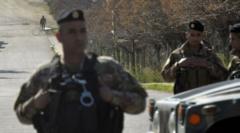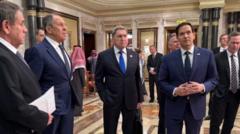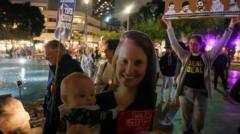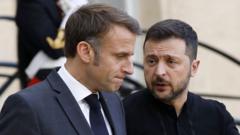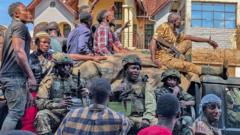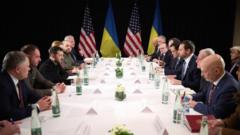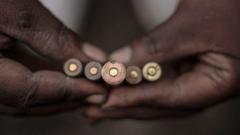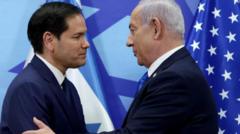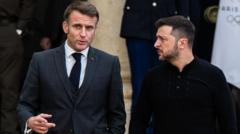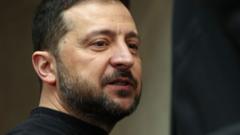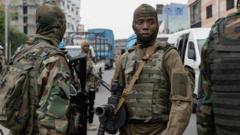In a recent summit held in Tanzania, leaders from eastern and southern Africa urged combatants in the Democratic Republic of Congo (DRC) to cease hostilities immediately to address a critical humanitarian situation.
Immediate Ceasefire Declared Urgent by African Leaders at Summit
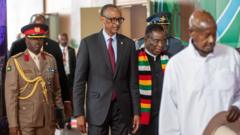
Immediate Ceasefire Declared Urgent by African Leaders at Summit
Regional summit in Tanzania demands halt to fighting in DR Congo amid escalating humanitarian crisis.
The Southern African Development Community (SADC) and the East African Community (EAC) called for an unconditional ceasefire and a commitment to peace talks within five days involving all parties, notably including the M23 rebels, who have made substantial territorial gains in the eastern DRC, particularly in Goma and their advance towards Bukavu.
The ongoing conflict, which has seen around 2,900 fatalities this year and displaced an estimated 700,000 people, has raised concerns over the potential for broader conflict in the region. During the summit, leaders expressed the necessity of political and diplomatic resolutions, highlighting the importance of reopening Goma airport and facilitating humanitarian aid. The DRC's government holds the position that the M23 rebels, allegedly backed by Rwanda, are attempting to gain control of vital mineral resources, while the rebels assert they are advocating for minority rights.
Rwandan President Paul Kagame attended the summit but has denied backing for M23, a claim contested by UN reports indicating the Rwandan military's significant involvement in the group's operations. President Félix Tshisekedi of the DRC participated via video link due to security concerns, leaving Prime Minister Judith Suminwa to represent the DRC in person.
Kenyan President William Ruto, current chair of the EAC, emphasized that military actions alone would not resolve the complex crisis, while Tanzanian President Samia Suluhu Hassan insisted on collective regional responsibility to mitigate the ongoing conflict, warning that historical judgment would be severe if leaders fail to act.
The DRC's humanitarian situation continues to deteriorate following years of instability, with regional dynamics tightening as the conflict extends back to the 1990s.
The ongoing conflict, which has seen around 2,900 fatalities this year and displaced an estimated 700,000 people, has raised concerns over the potential for broader conflict in the region. During the summit, leaders expressed the necessity of political and diplomatic resolutions, highlighting the importance of reopening Goma airport and facilitating humanitarian aid. The DRC's government holds the position that the M23 rebels, allegedly backed by Rwanda, are attempting to gain control of vital mineral resources, while the rebels assert they are advocating for minority rights.
Rwandan President Paul Kagame attended the summit but has denied backing for M23, a claim contested by UN reports indicating the Rwandan military's significant involvement in the group's operations. President Félix Tshisekedi of the DRC participated via video link due to security concerns, leaving Prime Minister Judith Suminwa to represent the DRC in person.
Kenyan President William Ruto, current chair of the EAC, emphasized that military actions alone would not resolve the complex crisis, while Tanzanian President Samia Suluhu Hassan insisted on collective regional responsibility to mitigate the ongoing conflict, warning that historical judgment would be severe if leaders fail to act.
The DRC's humanitarian situation continues to deteriorate following years of instability, with regional dynamics tightening as the conflict extends back to the 1990s.


